
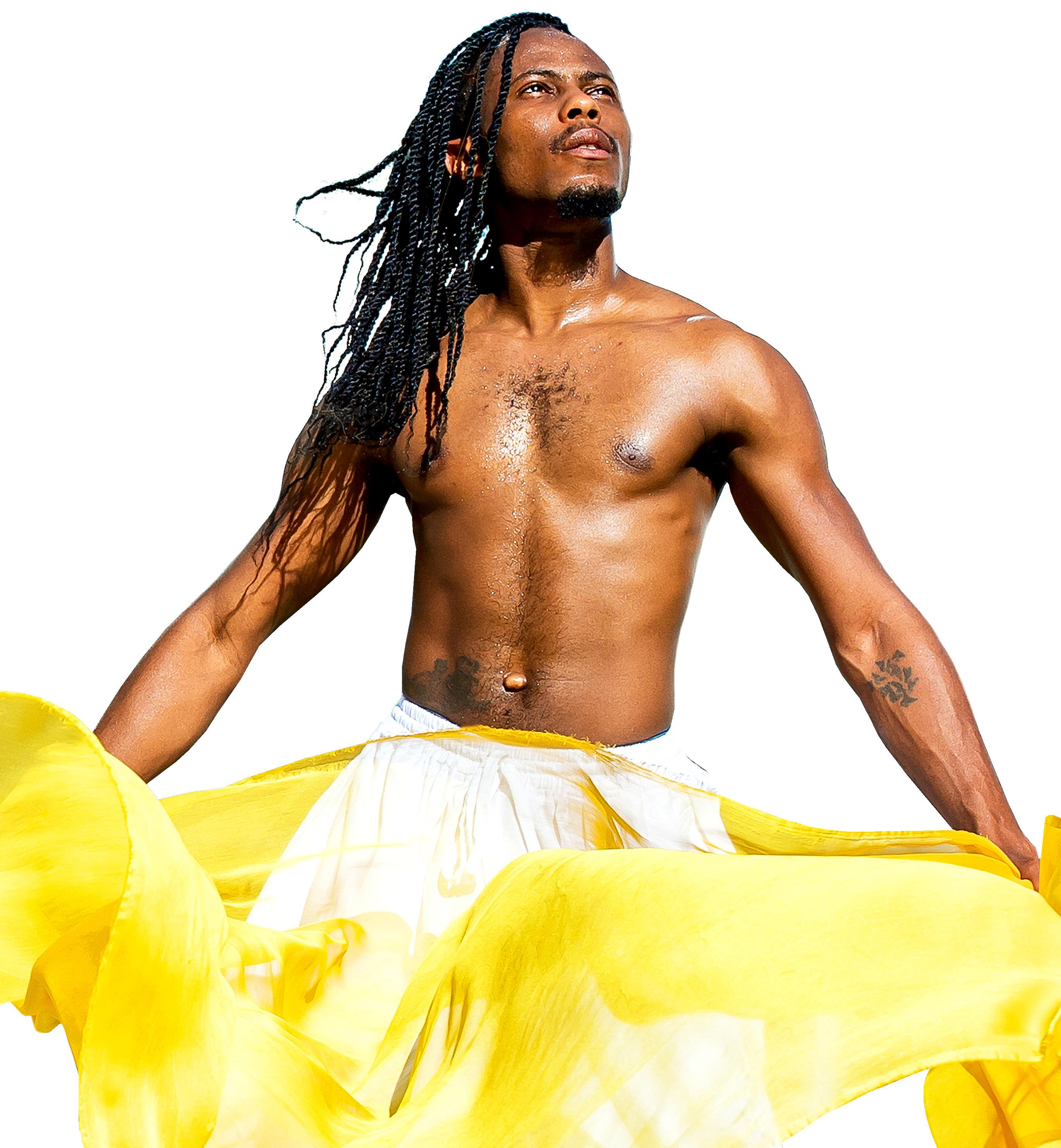
AIR 2022 IMPACT REPORT | MAVEN LEADERSHIP COLLECTIVE
riding the
director ’ s note
PRACTICE OF SURRENDERING

This summer my grandmother passed away at the age of 95. She was an incredible woman who understood what it meant to surrender— even with her characteristic fire, she knew how to be present and patient. She knew when to give something up and when to make offerings.
One of her offerings is why Maven exists today. My grandmother, a widow at the time, became Maven’s first major donor with a gift of $10,000. That was more money than the grants we had received from foun dations and unlike foundation-level giving, she never asked for her name to be broadcasted or even ac knowledged in the work.
She wasn’t a woman of great financial means as a re tired administrative assistant, but when I told her what I wanted to do and asked her to imagine a more just world, she was guided by her own intuition to invest in this dream.

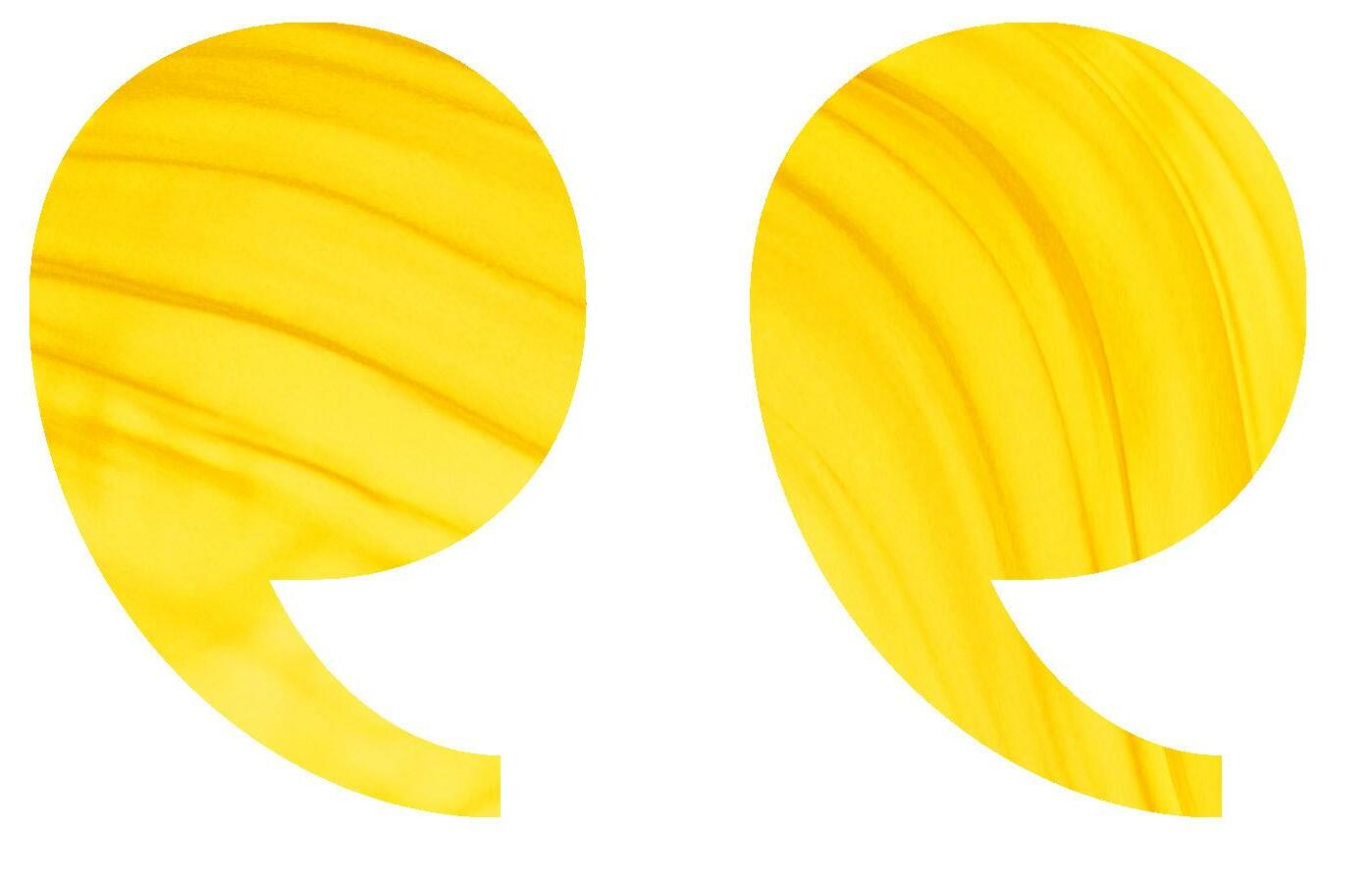
.
Being born in the rural Jim Crow South influenced her beliefs on justice and accountability. She would say, “You can go all around the belt, but eventually you must come back through the buckle.” In preparing to give her eulogy and reflecting on this advice she gave to me often, I asked myself, “What can justice-cen tered surrender look like through a Maven lens?”
Surrender as in the sober analysis that comes at 3 a.m. that control is an illusion.
I am talking about the kind of surrender that allows me to laugh in the face of failure or uncertainty and say “Ok, you got me on that one—but I am on the other side of it now. Still here.”
A NOTE FROM OUR EXECUTIVE DIRECTOR
executive
I HAVE BEEN THINKING A LOT ABOUT WHAT IT MEANS TO SURRENDER. THE
IF YOU SURRENDERED TO THE
YOU COULD RIDE IT.
— TONI MORRISON, Song of
Solomon
Maven Leadership Collective is an ideas lab that creates the conditions for Black and Brown social impact leaders who are queer, trans and allies.

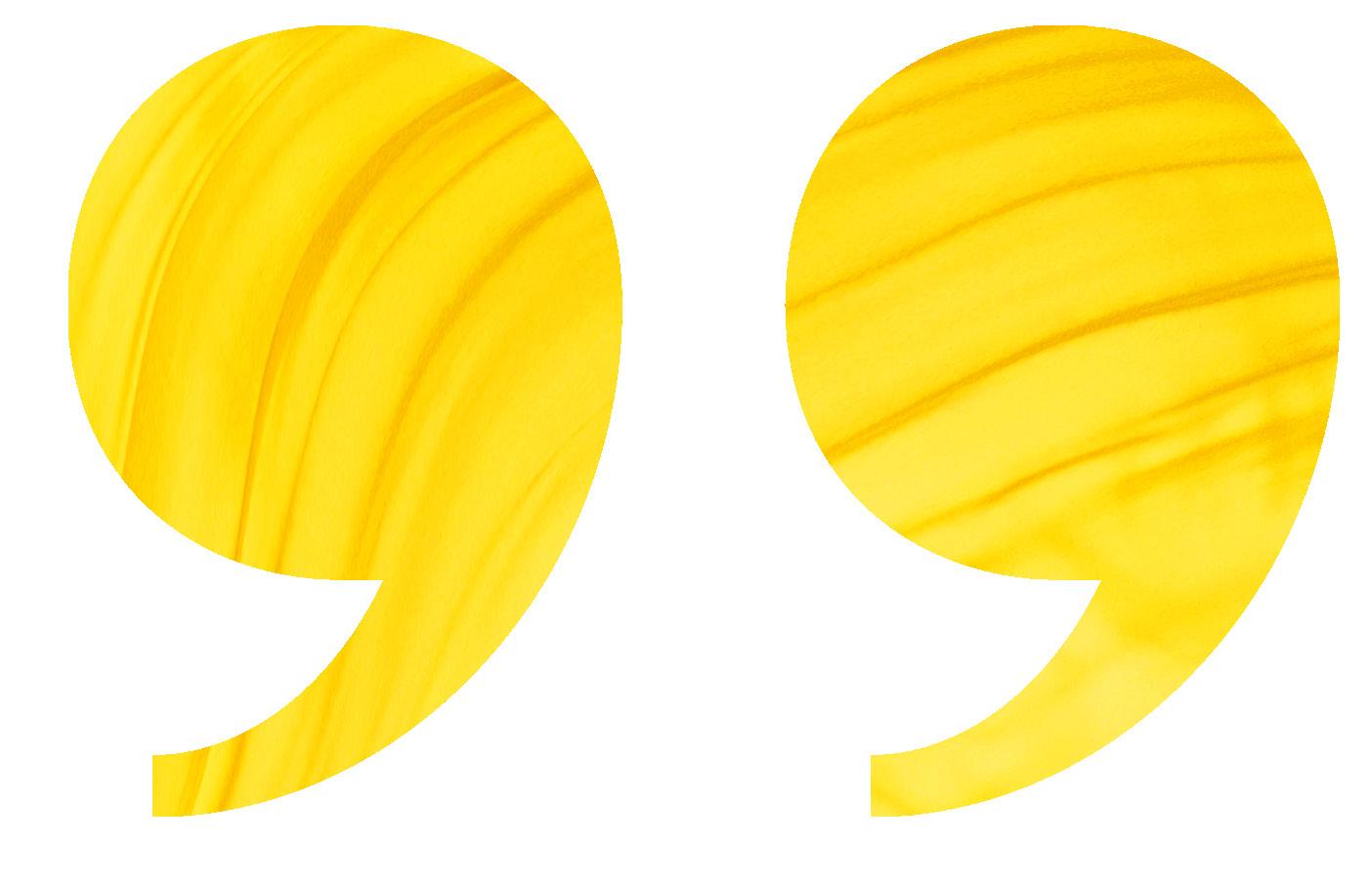
AS AN ORGANIZATION WE COMMIT TO PRIORITIZING:

of lifelong learners, exchanging ideas and reframing the leadership narrative through a practice based on meaningful relationships and a culture of care.
Holding sacred space for individual and collective healing that restores the covenant of trust that must exist for those in service to each other and community.
Identifying financial resources that are values aligned with our work and trusting our learning community.
03
02
04 2022 IMPACT REPORT | 01 continued on next page
This is not the type of surrender that does not acknowledge structural violence nor is it surrendering accountability.
When I speak of surrender, as is the case when I think of my grandmother’s contribu tions, it is truly liberating— even in moments of pressure, constriction, turbulence and not knowing. It is not a retreat or weakness.
And yet as we navigate a world that is not yet post-Covid, there are efforts to pretend that the after is here and in this “after” we must “return to normal”, as if the normal before the pandemic was one to aspire to in the first place.
The reimagining and the surrender to re lease firmly held ideas around essential labor and what it means to create justice-centered practices while interrogating how so many trusted institutions failed the most vulnera ble people they claim to serve during these past couple years is needed.
I also recognize that at Maven Leadership Collective we pour into Black and brown social impact leaders who are queer, trans, and allies while they are at critical moments in their process of surrender—sensing and experiencing the world, experimenting and building practices of resistance while chal lenging the status quo.

HOW DO WE
EASE & AGENCY?

Recently, I returned to my yoga practice. The familiarity of the mat also reminded me to measure myself against my own practice and not worry about what others are doing on their mat. I’m more gentle and kinder to myself when I do yoga; and I noticed that the deeper I surrender into a movement— even through some discomfort at first— the more I was able to access parts of myself before that surrender. The clarity that came from those 75-minutes of stretching is why we practice as a collective at Maven.
We deserve to build more just communities with greater ease. We deserve to reclaim agency over ourselves and careers. We de serve to exist. We deserve to consistently access a sense of belonging and joy. We de serve to surrender into our bodies and relax.
Maven remains committed to the realization of this promise. Unapologetically.
WITH GRATITUDE, COREY DAVIS (HE | THEY) Co-founder & Executive Director
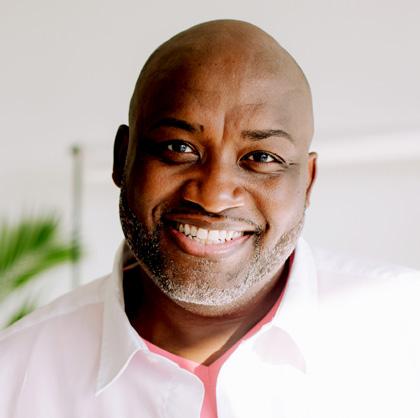
WHEN I SAY SURRENDER, I’M NOT TALKING ABOUT THE TOXIC, PERFORMATIVE ZEN USED TO SMOTHER AND SILENCE THE KIND OF RAGE JAMES BALDWIN SPEAKS OF AND VALIDATES—
| A NOTE FROM OUR EXECUTIVE DIRECTOR 02
“ TO BE A NEGRO IN THIS COUNTRY AND TO BE RELATIVELY CONSCIOUS IS TO BE IN A STATE OF RAGE ALMOST, ALMOST ALL OF THE TIME — AND IN ONE’S WORK.”
GREATER
WE GREATER AGENCY?
Time and funding for consistent, intentional capacity-building is essential to ensuring that organizations are reliable resources for everyone they serve.
We must stop co-signing unacceptable behavior by sharing our presence with people and institutions who are not values-aligned. We can no longer perform mental contortions to justify one more extension of grace for people who are not working toward redemption.
In times of pressure, where the conventional wisdom is to contract, expand—whether it’s the size of your dream, the depth of impact, or the literal operation.
As your organization begins to gain more clarity about its mission and the values that will allow you to live it, everyone may not complete the journey with you. And that is ok
As we come to understand how to provide a culture of care and mental well-being, we must also expand our practice and resources to the caretakers and the other members of our teams who bear the impact often in silence.
Liberation will not come from organized philanthropy as it currently exists, but that does not diminish our responsibility to reimagine it
Organizations need side-hustles to achieve organizational health. Financial freedom powered by earned revenue fuels creativity, experimentation, and independence in decision-making necessary for true sustainability and impact

Black-led organizations serving Black constituencies do not get the luxury of doing one thing. We must be many things to many people. The funding gap does not reflect that.
Power and wealth does not automatically equate to being well-informed or right.
2022 IMPACT REPORT | 03
IN LAST YEAR’S REPORT, I PROMISED TO SHARE MORE ABOUT HOW OUR INTERNAL LEARNING PROCESS IS YIELDING INSIGHT FOR A NEW WAY FORWARD:
NAVIGATING HEAD winds
AS AN IMPACT LEADER
HOW MAVEN EASES THE WAY FOR ARTISTS
In a perfect world, regardless of one’s race, gender, or sexuality, artists and social impact leaders would have access to the necessary tools to create innovative stories about communities that are often overlooked or underserved. There are, however, a number of challenges Black and brown queer and trans artists face, including systemic racism, inequality, and financial barriers. Since it’s inception, Maven Leadership Collective has created partnerships, provided funding opportunities, and facilitated capacity-building support for Black and brown queer and trans artists, thus reimagining what it looks like for organizations to dream, create, take up space, and prioritize their community.
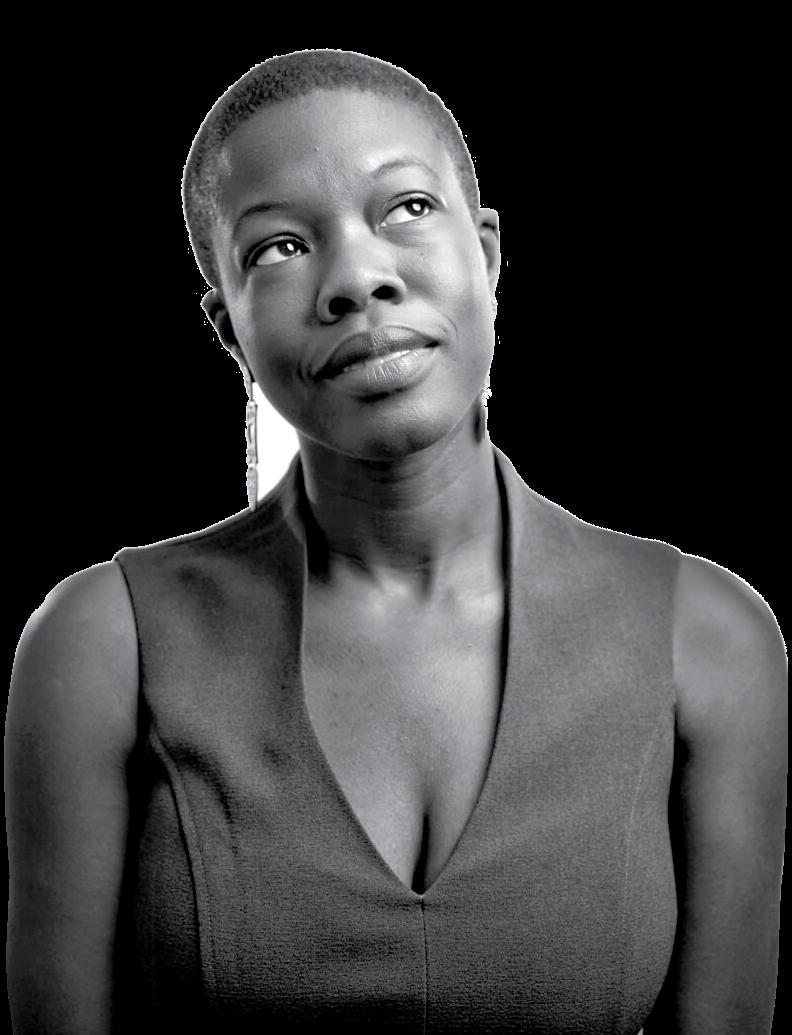
04
| NAVIGATING HEADWINDS AS AN IMPACT LEAD ER
Nadege Green (she | her), a Maven, independent researcher, writer, editor, community archivist and audio producer, had an idea for a project Give Them Their Flow

is a Black queer Miami history exhibit. Green found that because she was not an established 501(c)(3) or nonprofit entity, foundations were less likely to fund
Once Maven decided to work with her, it “cleared up a lot of space,” for her to be able to realize her vision. She was able to commission a photographer and vid eographer without having to pay out of her own pocket.
Having someone who was open to see the value in the work, and also the necessity to actually fund it in a way that allows for it to be created fully was not something that I’ve seen or had access to. The financial support allowed me the freedom to not stress about how it’s going to be done.
— NADEGE GREEN (SHE | HER)
“Maven is people-centered and community centered—and not like in a per formative way. They put people first and find ways to support them so that they can materialize whatever it is that they want to do,” said Va nessa Charlot (she | her), the lead photographer for Green’s Give Them Their Flowers Project and Maven short film, Lip Service. “Ma ven more than anything gives artists and impact leaders the opportunity to dream without having to be sub jected to fitting a specific image or checking a box,” Charlot says.
Most importantly, Charlot high lights, is the way Maven’s support alleviates artists from having to get caught up in daily struggles. As the lead photographer for Green’s Give Them Their Flowers Project, Charlot was selected for her extensive ex perience documenting Black communities with the Miami landscape as a background. Charlot is well aware of how Black stories in general shape public narratives about Black people. At 12 years old, Charlot, the daughter of immigrant parents, began tak ing photographs.
“My mother wanted me to go to a better school so I began to document my com munity and presented the work to the school,” Charlot said. “At the time, I didn’t really know how to prepare a portfolio. I got my pictures developed at Walgreens. It was also the first time that this very white school in South Miami had ever seen Little Haiti depicted so intimately.”
2022 IMPACT REPORT | 05
continued on next page
The award-winning photographer also pro vided visual support for Maven’s short film, Lip Service. Exploring the tension between the rhetoric used to hold power and the language of liberation, Lip Service showcas es the stories of three South Florida artists and impact leaders who have had to deal with empty promises and microaggressions in order to pursue their work. Charlot’s portraits, shot in black and white, beauti fully capture a wide range of her subjects’ emotions–telling their own story.
“Corey gets it,” said Charlot. “He absolutely respects artistic vision, and he understands the importance of giving me the space to re ally express what I see. Not only was [working with Maven] very supportive, but it was also affirming, and overall a great experience.”
Charlot acknowledges that the purpose of her work is to produce visual representa tions free of an oppressive gaze.
“When you eradicate the white gaze, or you at least begin to grapple with the need to do so, you’re able to create bodies of work that are more authentic,” said Charlot. “Work that speaks to someone’s reality and their lived experience instead of projecting or filtering through a lens that does not re flect the person.”
While reflecting on the many ways Maven has helped artists navigate challenges, Arsimmer McCoy (she | her), writer and international poet who was featured in Lip Service, said Maven has made it so that the work of artists and organizers no longer goes overlooked. For McCoy, having access to resources and creating within a collective is most beneficial to her artistry.
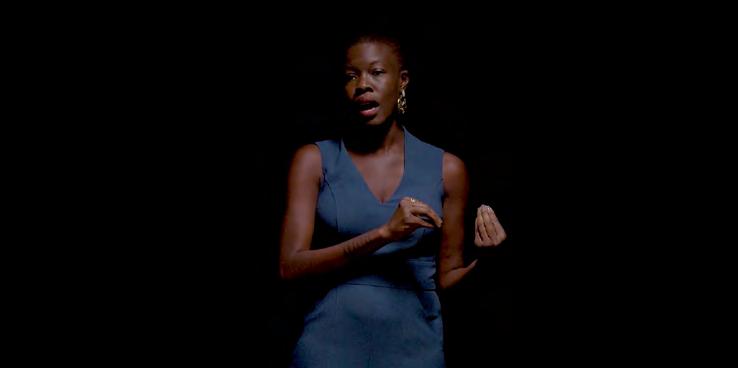
“They put their endeavors front and cen ter and let communities know that there are voices fighting for them,” said McCoy. “Maven supports how I use language and collaborative projects to evoke change. They understand that there are many ways to cultivate healthier communities and one way is to enlist thoughtful and innovative artists, who use their craft to do the work.”

06 Watch CREATING SPACES FOR ARTISTS AND SOCIAL IMPACT LEADERS TO PRODUCE WORK THAT IS radicallyauthentic AND ROOTED IN COLLABORATION HAS REMAINED A PRIORITY FOR MAVEN LEADERSHIP COLLECTIVE
(SHE | HER) | NAVIGATING HEADWINDS AS AN IMPACT LEADER
ARSIMMER MCCOY
Lip Service
Exploring the tension between the rhetoric used to hold power and the language of liberation, Lip Service is a raw and organic portrait of three people’s unique yet universal experiences.
Green, who was also featured in Lip Service said that participating in the project allowed her to give voice to various slights she expe rienced out in the world and the aggressions that she faced that may not always be real ized as such.

“There’s just so many different ways that you are shown that even if you were invited here, you don’t belong here,” said Green. “We don’t really think you belong here, or we think you’re an anomaly, you’re special. And I don’t mean that in a beautiful way. But, in a very othering kind of way. Lip Service gives voice to what it means to exist and deal with that, but also, the ways we resist that.”
During the premiere of Lip Service in Spring 2022, the audience could be seen nodding their heads in agreement as Green, McCoy, and Jasmen Rogers (she | her) recounted their experiences dealing with the clear an ti-Blackness, homophobia, or transphobia with their presence in a room. Green lik ened the experience to hearing testimony in a Black church.
“I think, if you ever had to be in a Black church, for example, and on Sunday when someone stands up to witness or give their testimony, often what you find is that there are other people that even if this testimony is not exactly theirs, but they hear themselves in the things that have happened to this individual,” Green said.
“It can be an individual sto ry, but it’s also a collective story because we all have dealt with these systems and have felt those cuts from the system and sometimes very deeply.”
2022 IMPACT REPORT | 07
continued on next page
Vũ
Green said following the screening many people approached her to share their own similar experiences.
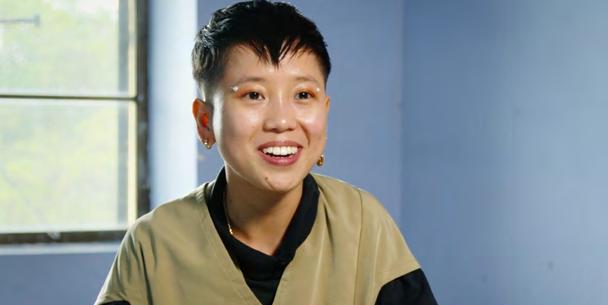
“When you witness and give testimony, it also gives people space and courage to tell their stories too,” Green said.
Dejha Carrington (she | her), the Co-found er of Commissioner, an art membership program that helps folks who are everyday art lovers collect the works of some of the most gifted contemporary local artists, said through a partnership with Maven, they have been able to commission queer artists of color whose work is specifically centered around social engagement or social practice. The outcome, Carrington said, is that Ma ven has supported not just the painting or an object, but the experience of interaction and learning and transformation in itself.
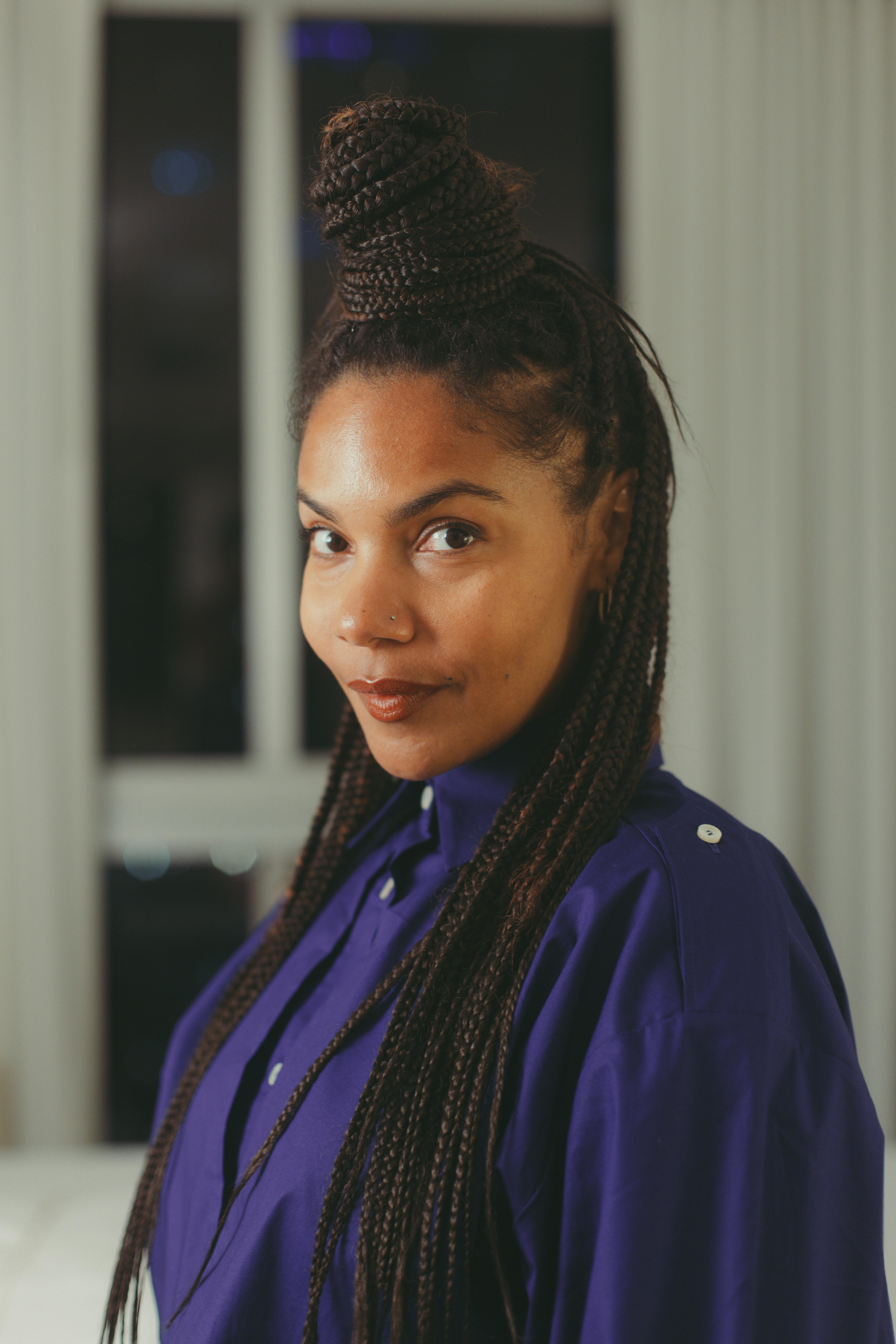
“Often what we see is people buying art or engaging in the art market, but not necessar ily understanding where the artist needs sup port,” Carrington said. “Maven’s understand ing of equity, diversity and access really points to the people issues that we have in the in dustry, and helps shed light on the fact that artists do need support, and also artists who are underrepresented, especially in the profes sional marketplace deserve to be amplified.”
Maven’s support also lends itself to impact leaders outside of the arts. Christopher Cuevas (they | them), former executive di rector of QLatinx, is an alumnus of Maven Leadership Collective’s intermediate-level professional development. During the pro gram, Cuevas spent six months in a trans formational learning experience designed to enhance their operational skills, professional networks, and well ness habits.
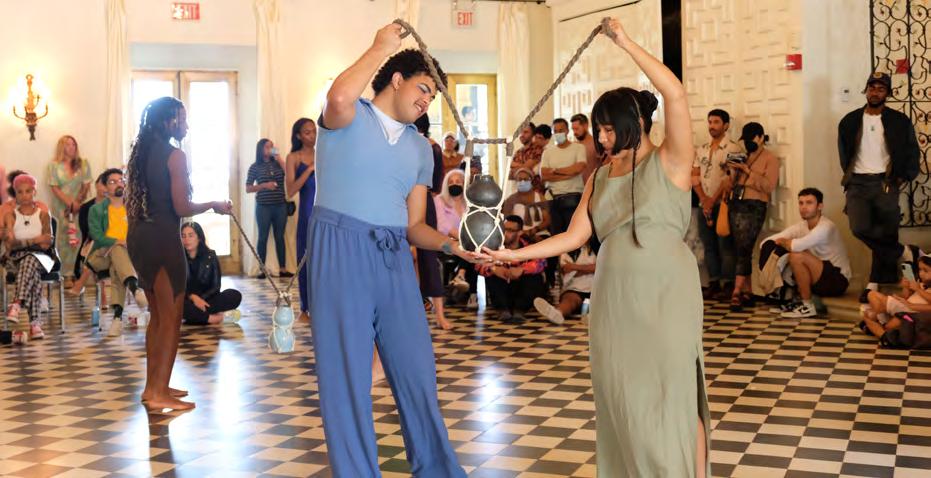
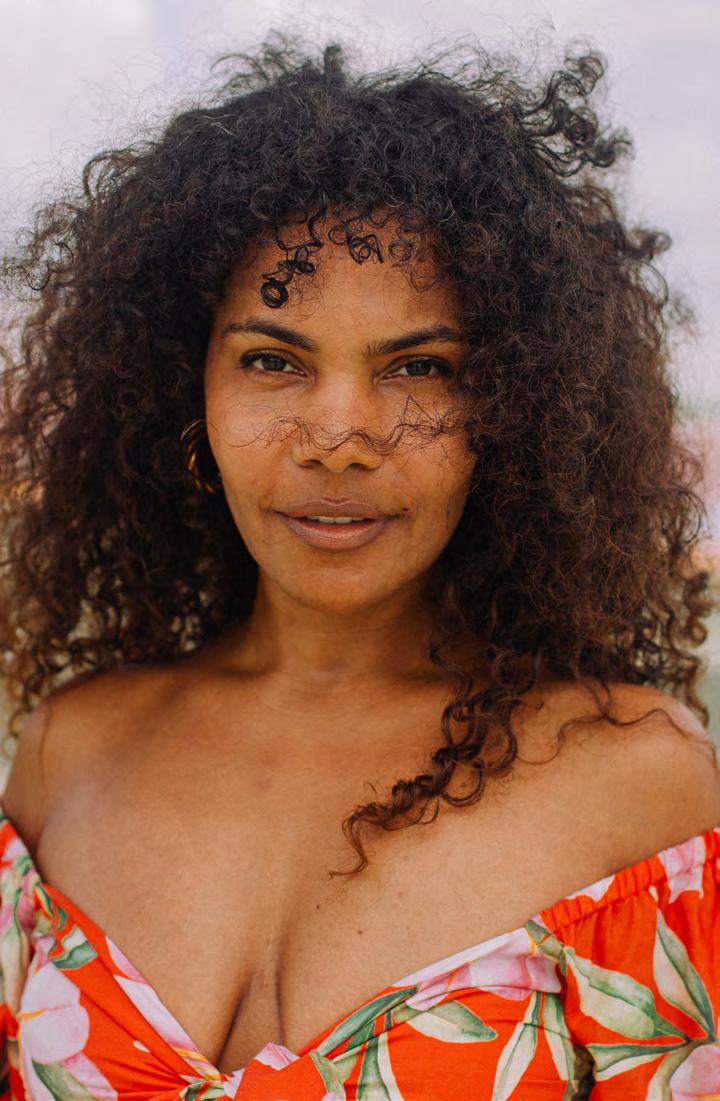
“It was just such a wonderful experience,” said Cuevas. “Ma ven really followed me through an experience where I was able to quickly learn a set of skills so that I didn’t have to put a pause on the work that I was doing. Instead, I was able to seamless ly integrate my learning into my day-to-day work to support my self and our team.”
When Cuevas started the co hort-style professional devel opment, they were leading a non-profit at the administration level—a first for them. Cuevas had done nonprofit work, but it was more front-end organizing. Their heart was in the organizing component, so Maven’s support in grappling with the manage ment side made the difference. After the program, Cuevas was able to understand finances, prepare payroll, write grants, and understand the 990s.
Cuevas is well aware that Black and brown executive directors or Black and brown-led organizations are substantially un der-resourced when compared to white-led organizations despite doing similar work.
“It’s only recently that we started to see an uptick in the number of grant-making institu tions intentionally working to resource Black
08
Hô`Lô, a performance and offering by Vũ, presented by Commissioner.
Watch
was commissioned and presented by Commissioner in partnership with Maven Leadership Collective, New World School of the Arts and Mitchell Wolfson Sr. Foundation.
| NAVIGATING HEADWINDS AS AN IMPACT LEADER
DEJHA
and brown organizations,” Cuevas said. “However, when you combine the expe rience of Black and brown identities and trans identities, the numbers are signifi cantly stagnant.”

Similar to McCoy, Cuevas sees one of the largest challenges that prohibit brilliant strategists from producing is a combined issue of lack of resources and a lack of trust from mainstream institutions.
“They’re highly criticized for a lack of credentials, or traditional credentials,” Cuevas said. “There’s this risk factor like ‘oh, I don’t know your work. You’re very new. And so, you know, investing in your work early on is considered super risky—and many foundations are very risk averse.”
Cuevas’ hope to really challenge those dynamics and lead forward with a trust-based model where they are ac tively working to build relationships with people. This looks like leaning in on the expertise of folks in commu nities to give them recommendations on what resources would be most effective and where they are most effec tively deployed.
—
Hô`Lô, a performance and offering by Vũ, presented by Commissioner.
Photos by Andrea Lorena (@fujifilmgirl) courtesy of Commissioner (@cmxnr)
Watch
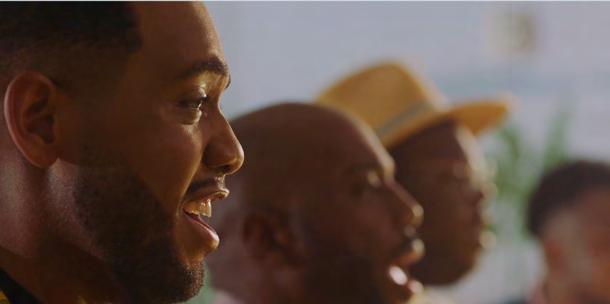


Filmed in the Historic Hampton House in Miami’s Brownsville neighborhood, Maven and Hued Songs collaborated in February 2022 to produce “Fierce & Unbothered”, a declaration of Black queer struggles and liberation. Juxtaposing archival footage of the Civil Rights Movement of the 1950s and 60s with current movements for Black freedom from police violence, homophobia and transphobia, the music video underscores the urgency in the work left to be done in dismantling systems of oppression and captures our unwavering voice as queer people who recognize the power of the arts and our own power in the fight for equality.

CHRISTOPHER
(THEY | THEM)
2022 IMPACT REPORT | 09
“Fierce and Unbothered” featuring Hued Songs
The best practice is to trust folks in the community around you. They know what they want to do with the money that they can receive and who they trust to be able to execute the work that they need and want to see done.
CUEVAS
(SHE | HER)
DEJHA CARRINGTON
CRITICAL
(SHE | HER)
Capacity building, which is the crucial work of improving an organization’s ca pability to perform and thrive, has been integral to the success Maven has contributed to communities in South Florida and Central Florida and beyond over the years, but it’s not always valued by donors and even some leader ship. While it may not be the most alluring field for development, capacity building democratizes opportunity and according to Maven Executive Director, Corey Davis, “there is tremendous fruit if you just work the harvest.”
Despite a nation-wide push for diversity, equity, and inclusion training in 2020 as a result of the country’s racial reckoning, the racial leadership gap in the nonprofit world remains large ly the same. The lack of inter est in funding capacity build ing only exacerbates that gap. While the public displays of commitment to equity have receded in the past year, Maven’s work is helping organizations from South Florida to Durham and New York City fund capacity building and truly shift the culture in a meaningful way. Maven’s particular approach to capacity building is similar to their organiza tional philosophy of being community-minded.
“When people are serious about capacity build ing…we [are] able to put some real changes in place,” said Davis. “Organizations that have ei ther come through our Leadership Development Program, or through our consulting work, just breathe a huge sigh of relief.”
Maven was hired as a consultant by an organi zation who experienced a public rupture over a history of institutional racism. Over the course of two years, they were able to hire a dedicat ed staff member that is a director of equity and belonging. With Maven’s help, they were able to build the capacity to do the work internally and prioritize it in their own budget.
Recently, Maven has been offering free commu nity coaching in North Carolina. Davis says the need for these coaching clinics has been more than apparent and showcases the great need be hind capacity building. By providing participants with a safe space for ideation and exploration, capacity building for Black and brown organiza tions reinforces that communities of color are worthy of investment, while creating opportunity for generations to come.
COREY
(HE | THEY)
10
THE
IMPORTANCE OF INVESTING IN CAPACITY BUILDING
IT HAS BEEN FIVE YEARS SINCE MAVEN HAS BEEN CREATING AN ECOSYSTEM OF SUPPORT FOR BLACK, BROWN, QUEER AND TRANS-LED ORGANIZATIONS.
When you have time and resources, that’s how you’re able to SHIFT THE CULTURE in a sustainable way. They don’t have to rely on us.
ALLISON FREEDMAN WEISBERG
Founder and Co-Director of Recess NYC
Recess is an organization that is deeply committed to EQUITY and RACIAL JUSTICE through all of its programming. Adding Maven to our ecosystem allows us to double down on that commitment to our values in a way that feels really generative and expansive.
| THE CRITICAL IMPORTANCE OF INVESTING IN CAPACITY BUILDING
DAVIS
“[Participants] have great ideas and they’re already doing very important work,” Davis said. “They just need a sounding board, they need somebody to help them think it through and I think that is the missed opportunity. We’re in the habit of having to go, go, go, do, do, do, that we don’t have the luxury of ideation or to experiment and test. We definitely don’t have the freedom to fail.”
“We’re not centering trauma, we’re not in the business of trauma porn,” said Davis. “What we are doing is centering the very talented leaders, and they are so much more than their trauma. We always position our people from strength, be cause they are strong, and they have strong ideas. They are creative people and so how boring is it to always focus on people’s trauma when we are more than our trauma?”
If there’s not a sense of PSYCHOLOGICAL SAFETY around failing, then where do we get the great advancements, the great ideas, where do we get that from?
While the idea of leadership may be just one person who, by sheer will, moves an entire or ganization, Davis reminds that organizations are successful when communities come together and have an ecosystem of support around them. Maven has been able to accomplish sustainable capacity building despite the many additional hurdles Black-led organizations face. Compared to white-led organizations, Black-led organiza tions are typically under-resourced in terms of philanthropic dollars and less trusted while white-led organizations usually have the luxury of only doing one thing at a time. Through lived experiences, Black leaders view the world with a multi-layered lens, seeing a multitude of which compels them to take action. At Maven, Davis says when they see incredibly talented people missing out on opportunities to contribute to their community because of the lack of resourc es or the lack of opportunity, they have likewise been compelled to rectify the situation.
“Because the need is so great in our communities, we rarely can be a specialty shop,” said Davis. “We have to do many things for many people with less and that’s just the reality for Black and brown leadership in the nonprofit sector.”
In the process of securing donations, Davis said they were once asked, “where the downtrodden Mavens are”. Another prospective corporate do nor told them that they could not find enough poverty on the website. But, when organizations focus on the trauma, they lose sight of the real problem at hand–actually funding those individ uals who need it.
By Maven pushing back against this stereotype and cliche, organizations are giv en a choice between bend ing to the will of oppressive systems or trying to educate and reimagine the language for them selves and the community.
DAVIS (HE | THEY)
“If people fundamentally, in their core, do not believe in equity, they do not believe that every one has a right to contribute and be celebrated, then there’s very little you can do to change their mind,” said Davis. “At a certain point, we have to stop being silent about it. We also have to stop seeking validation. Contorting yourself as an or ganization in order to get validation from people who are essentially part of the problem to begin with, is one of the most exhausting things.”
Going forward, Davis hopes that people will stop ignoring the research that proves people are happier working for organizations led by people of color, for funding to go to organizations with founders who were pushed out of large organi zations because their thinking was too progres sive, and for capacity building to continue being shared with organizations who are brave enough to shift their cultural impact beyond what the community can imagine.
“People are operating under the wrong model of how to see organizations and the help that they need,” Davis said. “When you provide capacity building, you’re able to help organizations and their ability to thrive. It’s a beautiful thing.”
2022 IMPACT REPORT | 11
COREY
REFLECTIONS FROM Costa Rica
By MAVEN NADEGE GREEN (SHE | HER)
To be VULNERABLE, BRAVE and to show up as your AUTHENTIC SELF requires more than lip service inviting you to do so—what are the conditions in place that allow for such an existence?
This was one of the first questions we were asked to reflect on as the Maven 5–Year Anniversary Cohort members—myself, Doris Parent (she | her), Pioneer Winter (he | him), Christopher Cuevas (they | them), Dejha Carrington (she | her) and Gaby Garcia-Vera (all pronouns)—settled into our Costa Rica retreat at a stunning nature compound nestled in the moun tains with a panoramic view of the ocean and lush foliage.
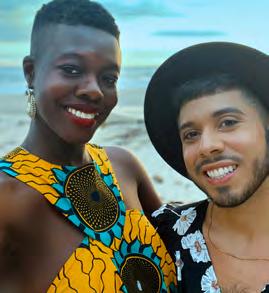
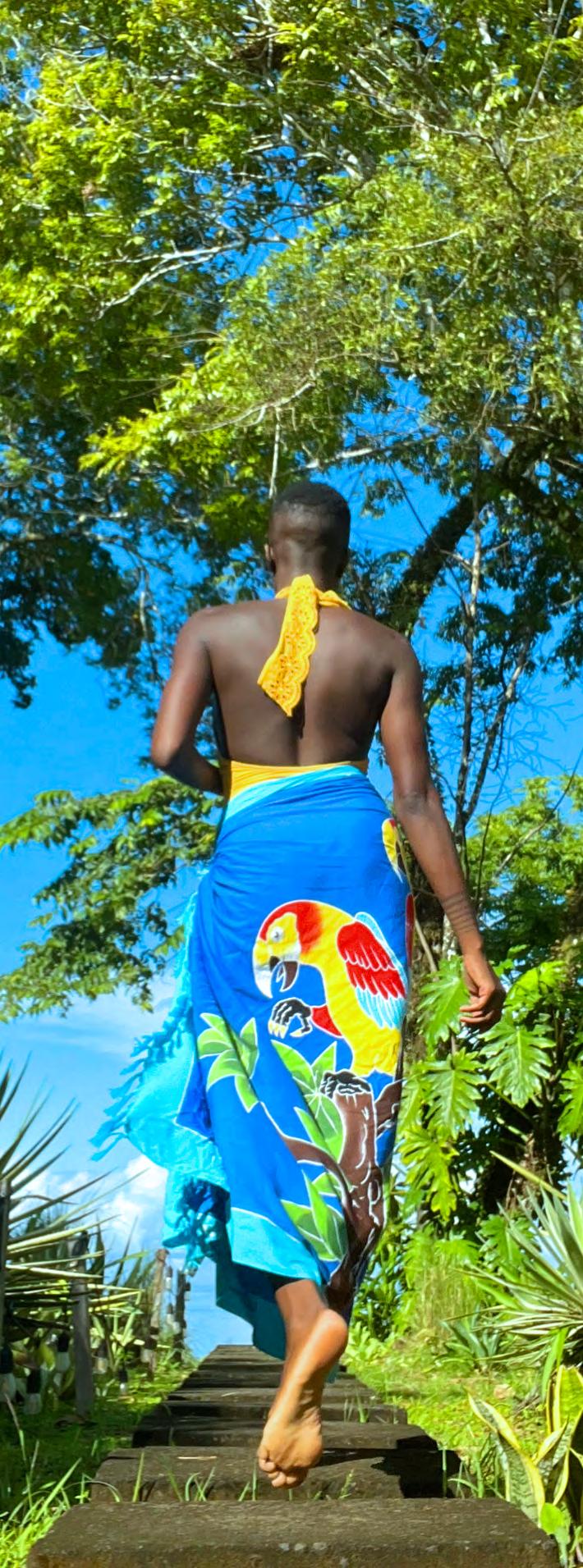
Pura Vida, simple life or pure life, we were told is a way of being in Costa Rica, more than a motto stamped on tourist merchandise and vacation packages, it is an invitation to suspend the noise and just be.
Inhale…exhale.
Being in nature invited me to slow down and hear the wind’s whisper, the ocean’s shhhh caressing the sands below, the whistling of birds just out of eyesight— there was already a lesson from the land on deep listening before our sessions started that extended into the days of thinking and being in community with one another.
inhale…exhale.
12
| REFLECTIONS FROM COSTA
RICA
We went down by the ocean as a cohort where the crashing of the waves punctuated Gaby’s “Big Idea”—a moment where each of us is called upon to lead an intimate conversation that digs deep on a particular topic or issue.
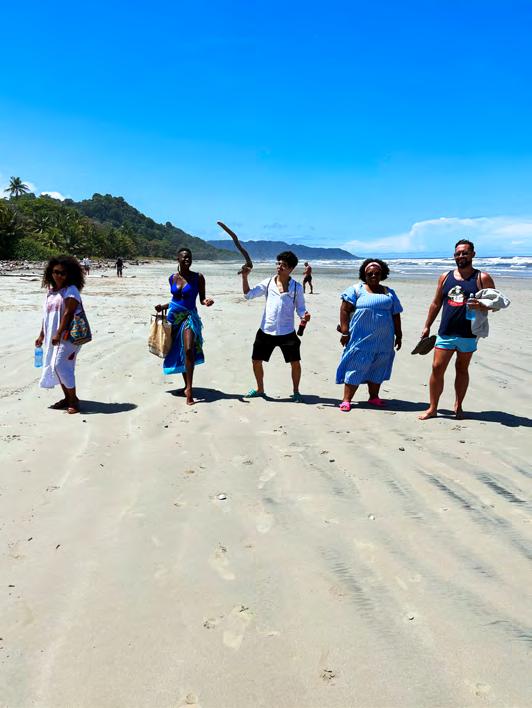
Gaby offered us a portrait of healing, failing, alignment and collective building while we sat in the sand listening and taking it all in.
There is this exhausting thing that happens at retreats that are really masquerading as over loaded conferences, but in much nicer settings, where you never actually get to retreat—that was not the case here. Rest was built in and priori tized. It was in those moments while laying like a starfish at the edge of the ocean waiting for a wave to gently wash over me that I could sit with the offerings from our cohort, turning them over and how they apply to me, a Black queer woman from the South by way of the Caribbean, a single mom, a healer and a storyteller.
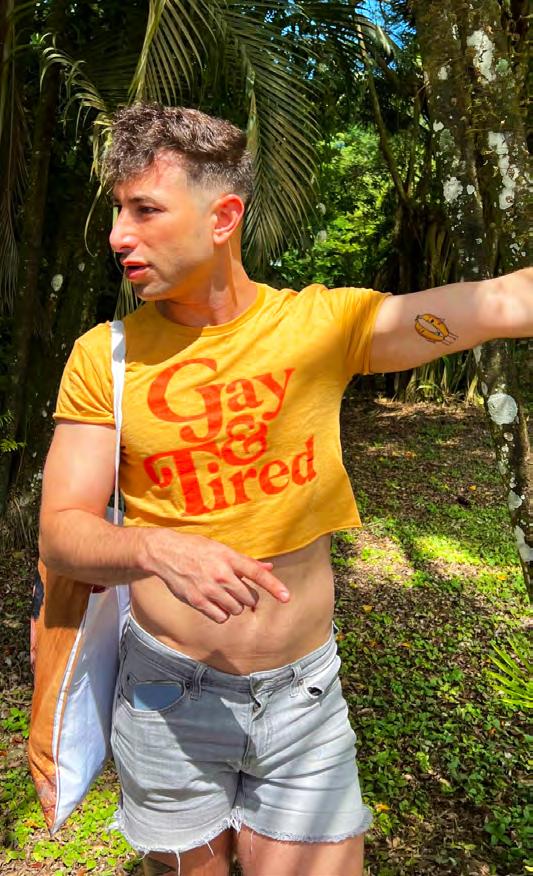
Next to me also allowing the water to rise over their body was Christopher. They were also con templating Gaby’s words in this moment of tran quility. They said with a relaxing sigh that con veyed lightness, “Stillness is divine.”

inhale…exhale.
— GABY GARCIA-VERA (ALL PRONOUNS)
2022 IMPACT REPORT | 13 continued on next page
I think oftentimes we think about throwing down and we elicit a vision of battle, I think throwing down is a radical act of love. We commit to taking on the world together.
In another Big Idea, this time led by danc er and choreographer Pioneer, we con templated what it means to build trust and consistency. Truly, it was also a lesson in trusting our bodies. I know for me, long before I can fully form what I’m feeling or experiencing with words, I feel it in my body. It manifests as a cramp often in my left shoulder, a sudden urge to rub my forehead, pain or tightness around my chest, the body truly does keep the score. What if we trusted our bodies?
So naturally we danced beneath the wood en pergola where we’d gathered. Many les sons were learned in our dance — how to lead, how to follow, how to open up, how to share, how to modify and how to let go.

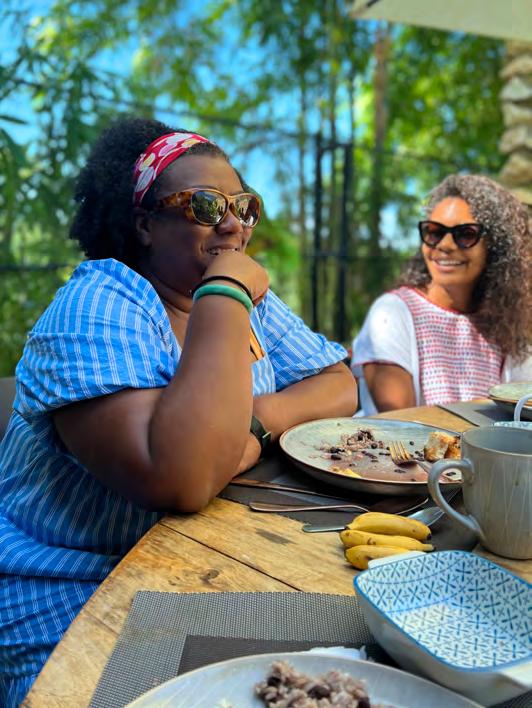

I love how supportive and tender we were with one another and how willing people were to give of themselves emotionally and in some very practical ways. Dejha, after hearing me lift up one of my challeng es, gave me an impromptu masterclass on marketing and the importance of direct email lists while sitting in a lounge chair sur rounded by trees and blooming flowers.

14
meditate
| REFLECTIONS FROM COSTA RICA
I work with perform ers who have been told they will never dance, or their body is not the right shape and that’s not true. I believe dance exists for every body.
There’s no question my favorite moments in Costa Rica were the many one-on-one conversations in the pool or over a delicious home cooked meal with fresh ingredients and natural fresh-squeezed juices. When we leisure to gether, when we eat together, it is a moment of commu nion that is nothing short of blessings. And the blessings did come down in the form of deeply reflective moments. I remember Doris, who gives it to you straight no matter what, with one eyebrow raised, her signature look before posing a thoughtful and necessary question, asking me, “What are you afraid of?”


SAT BACK
CAME.
meditate on that
2022 IMPACT REPORT | 15
Photographs courtesy of Nadege Green and Corey Davis
I
AND NO WORDS
I NEEDED TO MEDITATE ON THAT AND DID.
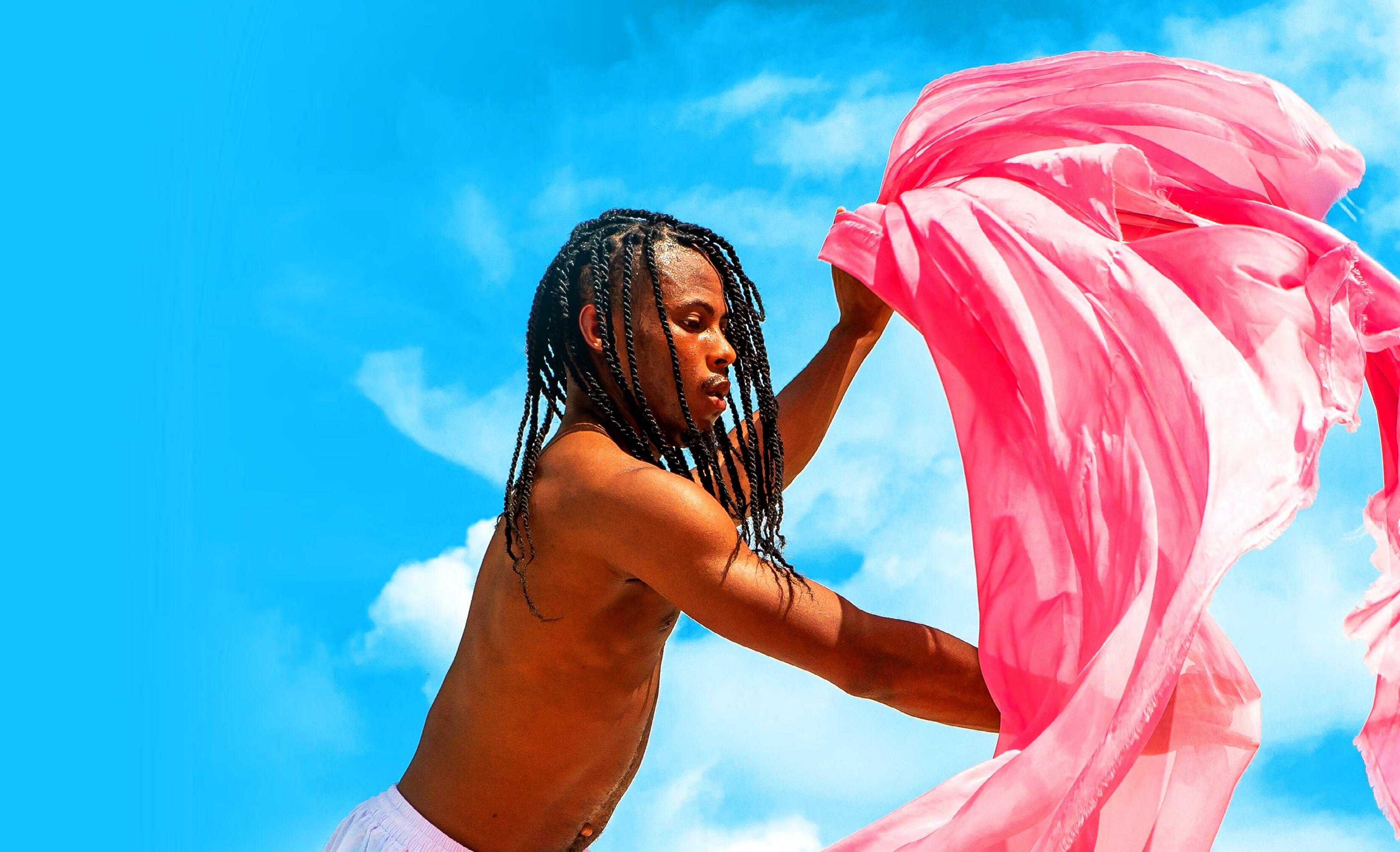









16 2022
NEW ORLEANS MIAMI FT LAUDERDALE ORLANDO WEST PALM BEACH NEW YORK CITY DURHAM/RALEIGH/CHAPEL HILL GREENSBORO SANTA TERESA, COSTA RICA | 2022 REACH
Reach

2022 IMPACT REPORT | 17
MAKHUBELE
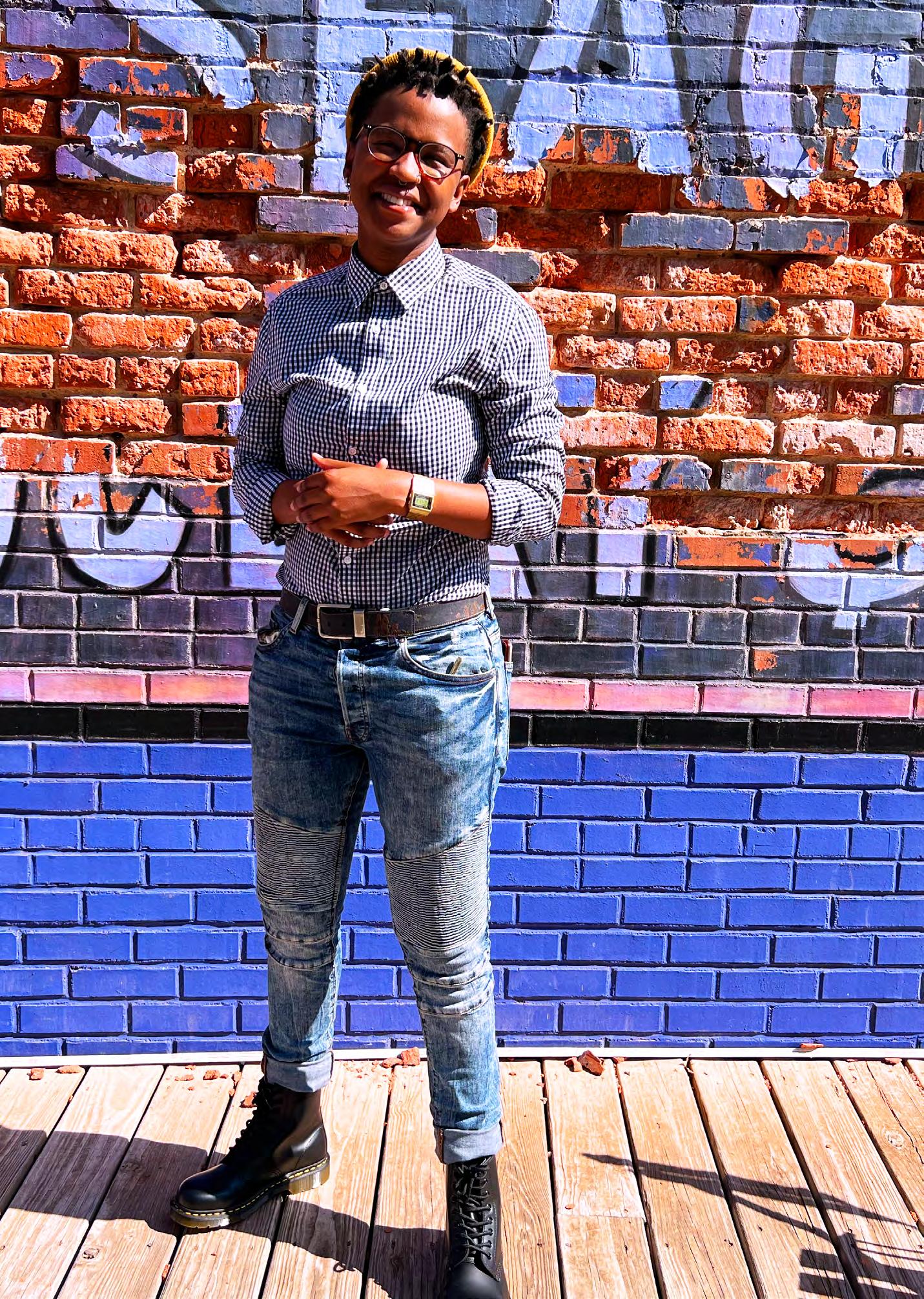

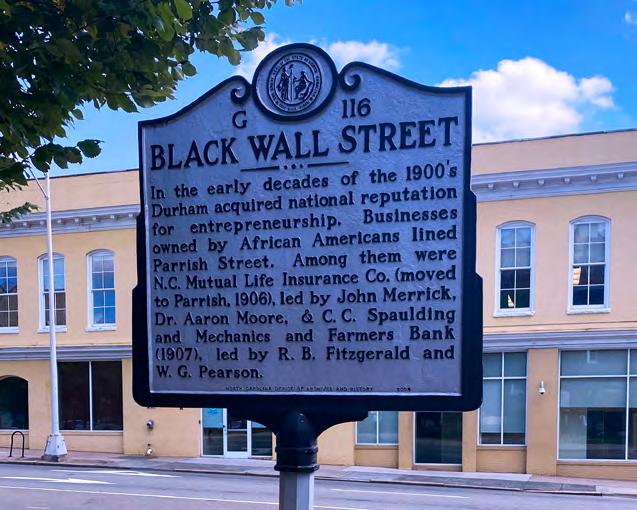
FIRST IMPRESSIONS North Carolina
Little more than a year ago, Maven assembled a group of the smartest, most invested people we know to dream with us about making a deeper commitment to building more just communities. It quickly became clear that we needed to increase access to our com munity of learners and the ecosystem of support we provide to Black and brown, social impact leaders who are queer, trans, and allies. After an intentional process that allowed us to meet and learn from so many ex traordinary folx who shared their lived experience and professional insights. They were unanimous in saying Maven should prioritize the American South.
Photograph courtesy of Dejha Carrington
SOMETIMES THE DREAMS YOU DARE TO DREAM REALLY DO COME TRUE.
BEVERLEY BOITUMELO
(THEY | THEM)
18 | FIRST IMPRESSIONS: NORTH CAROLINA
Co-founder of Rofhiwa, a black-owned, independent bookcafé in Durham.
For the first time, Maven expanded outside the state of Florida. We chose North Carolina because of its rich history, current importance, and future possibilities. We asked people doing the work how we can be most help ful and when we arrived, it just felt right.
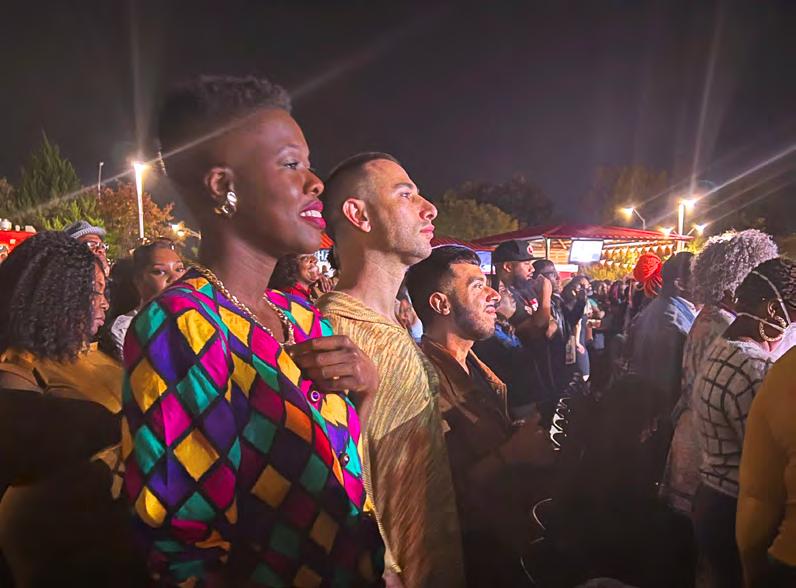
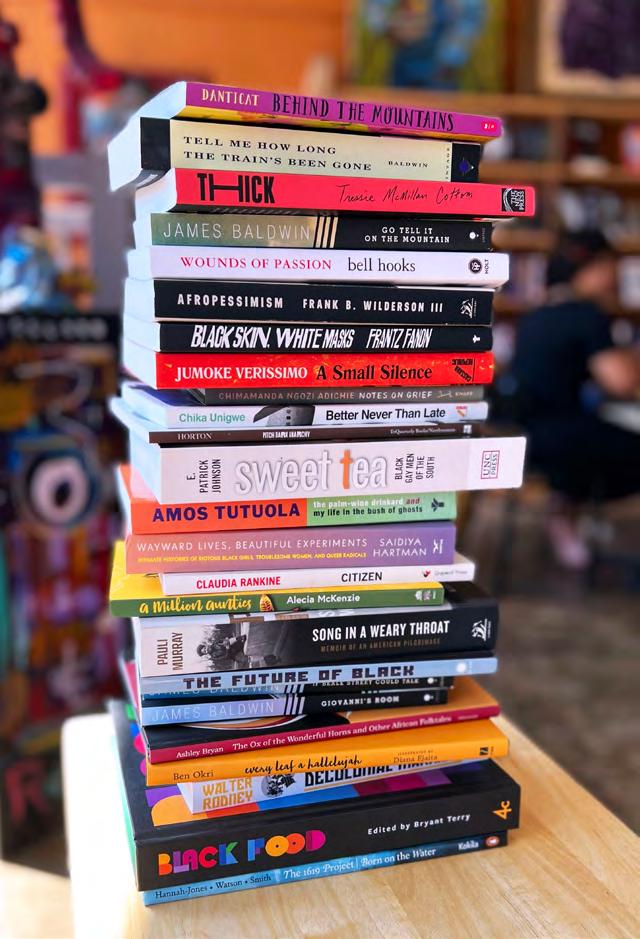

We have made some new friends, shar ing laughs and passionate discussions late into the night. We have learned from so many gracious people willing to share their hopes and stories. We have traced the historical steps of so many–the famil iar and the uncelebrated. We have hosted community coaching clinics and provided consulting services to local institutions. We have also eaten some of the best food and found stillness and quiet in surrounding nature.

Our work thus far has centered mainly in Durham, but as our time in the region grows, so too will our presence in Raleigh and Chapel Hill—each with its own distinct vibe suited to the needs of the cities. We’re excited to invite leaders in the Triangle to join Maven Leadership Cohort next year and we’re currently reimagining the program to allow us to include all of the regions we pour into. support Asheville leaders in dreaming big about how to be more creative and impactful.
2.
1. American Underground co-working space.

3.
4.
2022 IMPACT REPORT | 19
Durham-based photographer, DALVIN NICHOLS (HE | HIM) shares images of Durham through his eyes, a city we are growing to love. Mavens of the Anniversary Cohort additionally contributed images from their first visit to the Triangle.
Photos Clockwise from Top Right:
Nadege Green, Pioneer Winter and Christopher Cuevas at a Maxwell concert in Raleigh.
Book picks from Rofhiwa Bookcafé during the Anniversary Cohort’s first trip to the Triangle Photograph by Dejha Carrington
Black Wall Street 5. The Carolina Theater Photograph by Corey Davis
SHIFTING CULTURE ONE DAY AT A TIME
The impact of Maven Lead ership Collective’s cultural shift is undeniable: over the past five years the organization has supported artists, emerging leaders, and researchers across the South Florida community and beyond in pursuing projects that help Black, brown, queer and trans communi ties thrive. In just the last year, Ma ven has fully expanded into North Carolina, announced the $100,000 Elevate Impact Fund, and celebrat ed consulting wins across South Florida, North Carolina and New York City.
Candis Cox (she | her), the Vice Chair of the Board of Directors for the LGBTQ Center of Durham, first started working with Maven in Jan uary for strategic planning. From there, the board has undergone leadership coaching and she hopes to continue working with them in the future. Cox says that working with Maven is innately easier than working with other organizations
because as an organization led by queer people of color, they under stand the barriers, prejudice and struggles that queer, trans, people of color face.
“North Carolina is still the South and to have another cohort who is of a like-minded background and has similar driving goals is huge,” Cox said. “Having them in North Carolina means that we have one more progressive group that is working to change the thinking and actual institutional work that is be ing done around inclusivity. It gives you more hope.”
J. Clapp (she | they), Executive Di rector for the LGBTQ Center of Durham, first engaged with Maven at the suggestion of one of their funders, when they were making a new organization that would be running the North Carolina do mestic violence response Initiative for LGBTQ+ folks. Clapp wanted to help the leadership transition
from a university to a nonprofit, and they worked with Maven to create a strategic plan for that transition. That collaboration went so well that they eventually brought Maven back to do board training, visioning and coaching.
“It’s so rare to work as an LGBTQ nonprofit with leadership of color, doing the work that we’re doing,” said Clapp. “Finding a consultant that could speak to our experience and our leadership style, and help us grow all at the same time without making us bored, or feeling like we are in a remedial class, that’s Maven, and that’s magic.”
Since working with Maven, Clapp says their board has become en gaged and invigorated, in addition to seeing fundraising skyrocket. Maven was able to instill a holistic sense of purpose and motivation for Clapp’s board, and as a result fund raising has come more naturally.
20 | SHIFTING CULTURE ONE DAY AT A TIME
“I’m noticing that the staff is able to articulate their needs better,” Clapp said. “I’m also noticing that I’m less afraid to advocate either for myself or the organization.
Now is more important than ever to be seeking guidance and consulting from queer, trans organizations of color that harness a true investment in the communities they represent.
tion plan where Recess would retain half of the funds internally and im mediately distribute the other 50%. Within six months, they were able to donate $1 million to impacted youth and artists.
Working with Maven proved to be such a beneficial experience that Weisberg decided to work with Maven to create an alternative to a
programming, and marketing of YoungArts. In July, they were able to hire their first full-time Senior Director of Equity and Belonging all because of the groundwork they started with Maven.

“It was just a graduation from the consulting we started with [Maven],” Lengel said. “To be able to lay the groundwork for someone to come into the organization and move ev erything forward.
For Allison Freedman Weisberg (she | her), Founder and Co-Director of Recess NYC, every opportunity to work with Maven has increased their capacity to bring rigor and integrity to their work. The two or ganizations first worked together after Recess NYC received an un expected and unsolicited $2 million dollar donation from Mackenzie Scott. Weisberg engaged Maven to work with members of their ecosys tem including young people, artists, board members, staff members, and community partners, to figure out how to address the unexpected windfall and especially, to ensure it would be paid forward to their com munity. Maven helped facilitate dis cussions around the resources and they ultimately arrived at a distribu
— J. CLAPP (SHE | THEY)
human resources space where staff could access professional develop ment, conflict resolution, and an unbiased external person to provide insight whether it was around iden tity politics, or simply about growing as a young professional.
“I could not have foreseen any of the ways that we worked with Ma ven,” said Weisberg. “Every time we ask for support, they rise to the oc casion and provide a level of integri ty and transparency and equity that we just so appreciate.”
Rebekah Lengel (she | her), Deputy Director at YoungArts, worked with Maven to incorporate DEI practic es into their organization. The ses sions were individual and with board trustees, to make sure that equity is deeply rooted into the culture and
According to Lengel, Maven’s per sonalized approach is instrumental to their success because they are able to craft a plan unique to the or ganization’s needs. Jenny Schlenzka (she | her), Executive Director of Performance Space New York like wise said Maven cultivates an envi ronment that allows people to feel comfortable making mistakes.
“A lot of DEI work doesn’t happen because people, especially white people, are really scared of making mistakes,” Schlenzka said. “[With Maven], there was always a really open discussion that also felt confi dential, so I felt comfortable talking about issues.”
As Maven continues to be a lead er in diversity, equity and inclusion, organizations and recipients of Ma ven’s programs alike say the culture shift may not happen in a day, but Maven’s sustainable model ensures the change is happening.
ADDING MAVEN TO OUR ECOSYSTEM ALLOWS US TO DOUBLE DOWN ON THAT COMMITMENT TO OUR VALUES IN A WAY THAT FEELS REALLY GENERATIVE AND EXPANSIVE.
2022 IMPACT REPORT | 21
ALLISON FREEDMAN WEISBERG
(SHE | HER)
MAVEN CAN HELP YOU SEE THE WHOLE PICTURE INSTEAD OF JUST THE PICTURE THAT HELPS SERVE THE FOLKS WHO ARE THE MOST PRIVILEGED IN THIS COUNTRY
This also includes recognizing who can be and is a philanthropist. Queer and trans communities of color have a long history of mobilizing resources to support efforts working towards good.
At Maven, we believe that we each define how to be a philanthropist for ourselves. We believe that building just communities is a collective responsibility.
We are grateful to the alumnx, community partners, and allies who are invested in building an ecosystem of support for QTPOC social impact leaders.

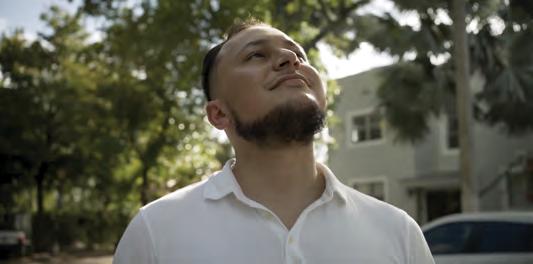
22
HELP SUSTAIN OUR WORK WITH A TAX-DEDUCTIBLE CONTRIBUTION TODAY. Mavenleadership.org/donate Watch I AM A
A New Way Forward WE ARE LIVING IN A FLUID WORLD. CONTINUED TURBULENCE INVITES US TO REIMAGINE HOW WE CAN SECURE MUCH-NEEDED SUPPORT FOR ONE ANOTHER. THIS INCLUDES FORGING A NEW WAY FORWARD FOR PHILANTHROPY BASED ON TRUST IN THOSE MOST IMPACTED TO IDENTIFY CREATIVE SOLUTIONS FOR IMPROVING OUR QUALITY OF LIFE. | I AM A PHILANTHROPIST
philanthropist
INDIVIDUAL DONORS









2022 IMPACT REPORT | 23
Beatty
Berdasco
Brooks George Brooks Michael Buick Dejha Carrington Linda Cheung Corey Davis Gary Davis
Dorsainvil Yasmin Flasterstein Corryn Freeman Lisanne Gage Gaby Garcia-Vera Rosen Gordon Jessie Guinn Richard Guzman Nik Harris Michelle Kucharczyk
Andres
Acosta Daniel Anzueto Matthew
Carla
Dylan
Rayon
Andrew
Losowsky Kyle Maharlika
Vivian Marthell
Pamela McCarthy Bamba
Nicolas Meade
Andrea Montanez
Roman Vernon Roper
Ropizar Jeff Schwartz Alina Serrano Marte Siebenhar Kareem Tabsch Elliot Williams Suzan Zeder
CORPORATIONS AND FOUNDATIONS
Walker Moseley Doris Parent Cassandra Phillipps Jasmen Rogers Michael
Adam
mavenleadership.org
















































